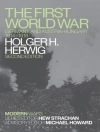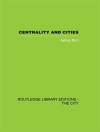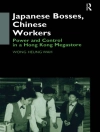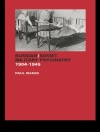Apprenticeship or vocational training is a subject of lively debate. Economic historians tend to see apprenticeship as a purely economic phenomenon, as an ‘incomplete contract’ in need of legal and institutional enforcement mechanisms. The contributors to this volume have adopted a broader perspective. They regard learning on the shop floor as a complex social and cultural process, to be situated in an ever-changing historical context. The results are surprising. The authors convincingly show that research on apprenticeship and learning on the shop floor is intimately associated with migration patterns, family economy and household strategies, gender perspectives, urban identities and general educational and pedagogical contexts.
Spis treści
List of Figures and Tables
Preface
Introduction Chapter 1. ‘Learning on the Shop Floor’ in Historical Perspective
Bert De Munck and Hugo Soly
PART I: BETWEEN SCHOOL AND HOUSEHOLD
Chapter 2. Apprentices, Servants and Other Workers: Apprenticeship in Japan
Mary Louise Nagata
Chapter 3. From School to Workshop: Pre-training and Apprenticeship in Old Regime France
Clare Crowston
PART II: BETWEEN CONTRACT AND PRACTICE
Chapter 4. Apprenticeship and Guild Control in the Netherlands, c.1450–1800
Karel Davids
Chapter 5. Construction and Reproduction: The Training and Skills of Antwerp Cabinetmakers in the Sixteenth and Seventeenth Centuries
Bert De Munck
Chapter 6. Learning by Brewing: Apprenticeship and the English Brewing Industry in the Late Victorian and Early Edwardian Period
Jonathan Reinarz
PART III: SOCIAL AND CULTURAL CONTEXTS
Chapter 7. Silk Weaver and Purse Maker Apprentices in Eighteenth- and Nineteenth-Century Vienna
Annemarie Steidl
Chapter 8. Social Mobility and Apprenticeship in Late Medieval Flanders
Peter Stabel
Chapter 9. Apprentices in the German and Austrian Crafts in Early Modern Times: Apprentices as Wage Earners?
Reinhold Reith
Conclusion Chapter 10. Reconsidering Apprenticeship: Afterthoughts
Steven L. Kaplan
Notes on Contributors
Index
O autorze
Bert De Munck is Lecturer in the Department of History at the University of Antwerp, Belgium, where he teaches social and economic history of the early modern period, history and social theory, and European ethnology and heritage. His research focuses on the history of craft guilds, ‘social capital’ and vocational education.












